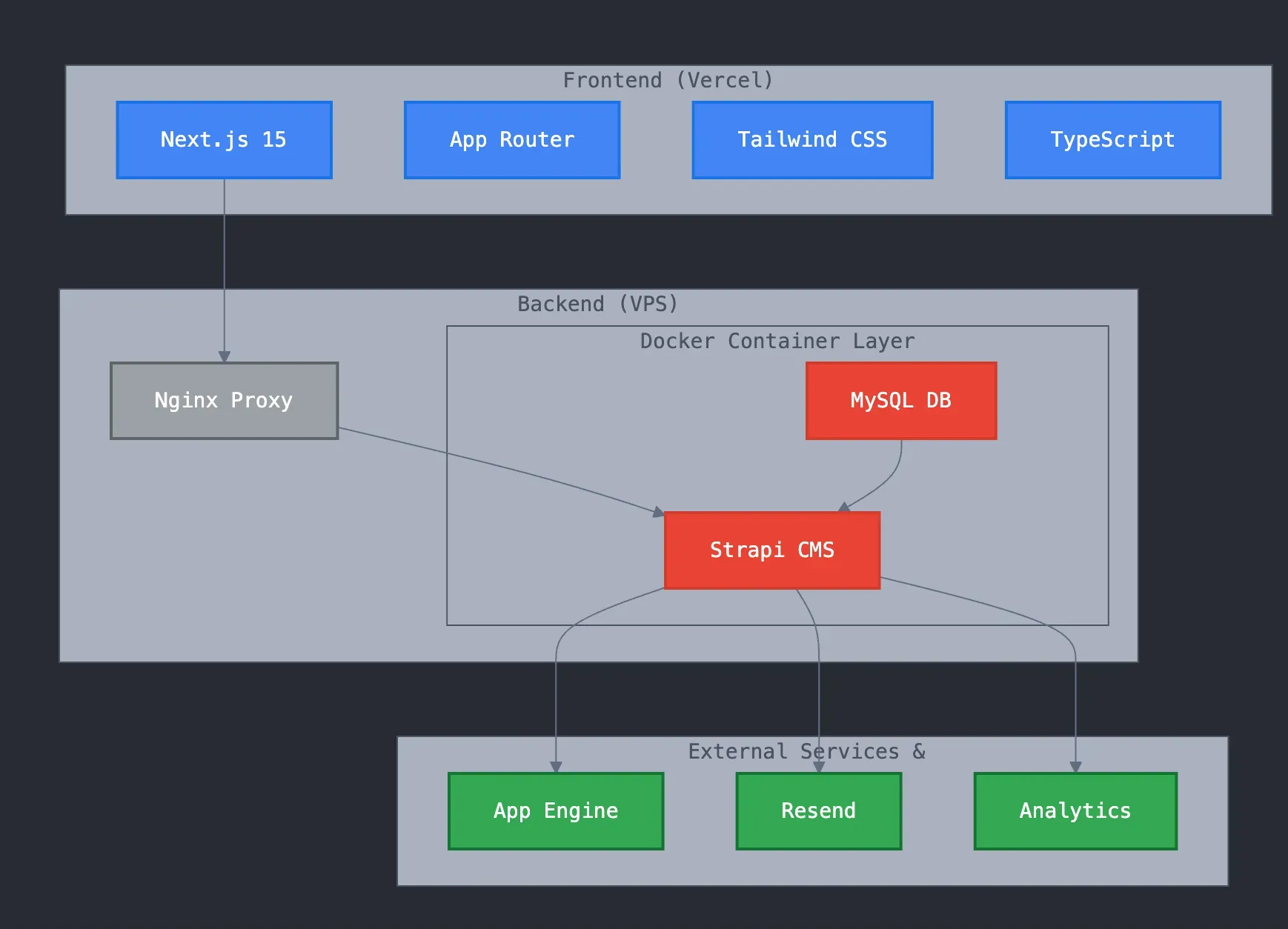Designing a Modern Architecture with AI
When I set out to build **Kryptunes.com**, my goal wasn’t just to launch a site—it was to create a platform with **modern, modular architecture** that could evolve as the product grows.
Designing Kryptunes.com
When I set out to build Kryptunes.com, my goal wasn’t just to launch a site—it was to create a platform with modern, modular architecture that could evolve as the product grows.
I already had a clear picture of what I needed:
- A fast frontend for content delivery.
- A flexible backend CMS that I control.
- A service layer for newsletters, analytics, and future integrations.
Instead of whiteboarding for weeks, I used Claude AI and Cursor AI to test my thinking, iterate on design options, and validate decisions. I wasn’t outsourcing the architecture to AI—I was using it as an intelligent assistant to speed up the “what if” phase and push me to refine ideas.

Frontend: Fast, Reliable, and Developer-Friendly
The frontend lives on Vercel, which gives me scalability out of the box.
- Next.js 15 with App Router → Server-side rendering, static generation, and API routes in one framework.
- Tailwind CSS → Utility-first styling that keeps the design consistent and maintainable.
- TypeScript → Type safety and long-term reliability.
This means every page is optimized for speed, responsive design is built-in, and future feature development stays maintainable.
To-Do mindset for frontend:
- ✅ Build with performance as a priority (Next.js + Vercel).
- ✅ Ensure consistent UI/UX with Tailwind.
- ✅ Keep codebase future-proof with TypeScript.
- ⏳ Next step: Expand component library for faster iteration.
Backend: Control and Extensibility
For the backend, I went with a VPS setup, containerized with Docker for full control.
- Strapi CMS → Flexible, headless CMS for managing posts, membership, and premium content.
- MySQL → Reliable relational database, easy to scale.
- Nginx proxy → Handles routing and security.
Running this on my VPS gives me more ownership than a pure SaaS CMS. I can extend the CMS, add custom plugins, and directly control data.
To-Do mindset for backend:
- ✅ Containerize Strapi and MySQL with Docker.
- ✅ Configure Nginx for reverse proxying and SSL.
- ✅ Integrate webhooks for frontend revalidation on content changes.
- ⏳ Next step: Add Redis for caching if traffic spikes.
Services Layer: Extending the Core
To tie everything together, I layered in external services:
- App Engine → Handles heavier compute tasks and workflows.
- Resend → Newsletter and transactional email delivery, already integrated with welcome flows.
- Analytics → Tracking usage patterns and measuring growth.
This makes Kryptunes more than a static site—it’s a system that can adapt, scale, and provide value to readers and members.
To-Do mindset for services:
- ✅ Newsletter flows integrated with Resend.
- ✅ Analytics connected for traffic monitoring.
- ✅ Beehiiv sync for subscriber management.
- ⏳ Next step: Deeper analytics dashboards for content performance.
Why This Matters
Too often, AI is used as a code generator. My experience is different: I already knew the stack I wanted, but I used Claude AI and Cursor AI to accelerate decision-making and prototyping.
- Claude helped me reason through different architectural trade-offs.
- Cursor made iterating on code and workflows much faster.
The real work was applying judgment: knowing why Vercel over Netlify, why Strapi over Ghost, why a VPS over a managed database. AI made me sharper, but the architectural clarity came from experience.
Closing Thought
Kryptunes.com now runs on this stack:
- Frontend that’s fast and reliable.
- Backend that’s flexible and under my control.
- Services that extend capability without overcomplicating.
It’s lean, extensible, and already production-tested.
If you’re building your own product, use AI not to replace your architectural thinking, but to challenge and refine it. That’s where the real leverage is.
#Architecture #NextJS #Strapi #Vercel #Entrepreneurship #AI